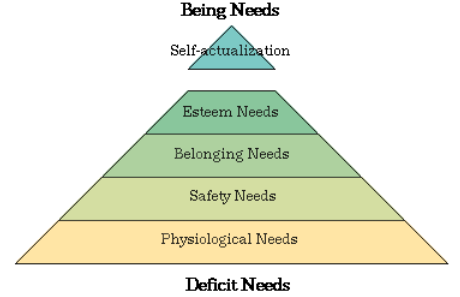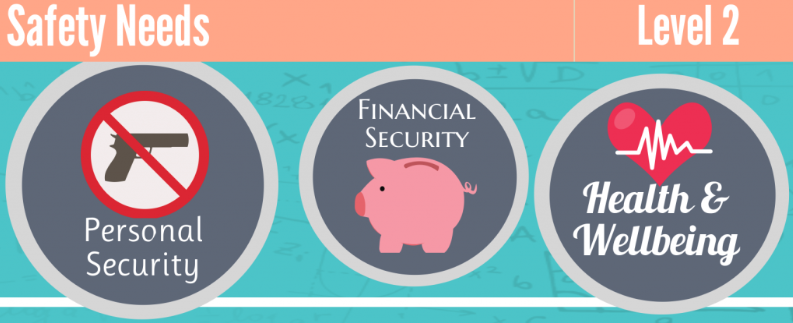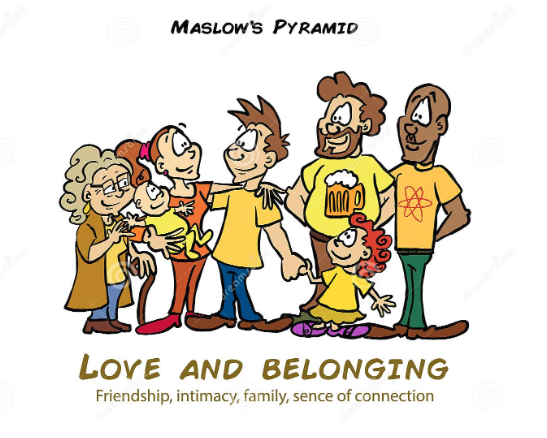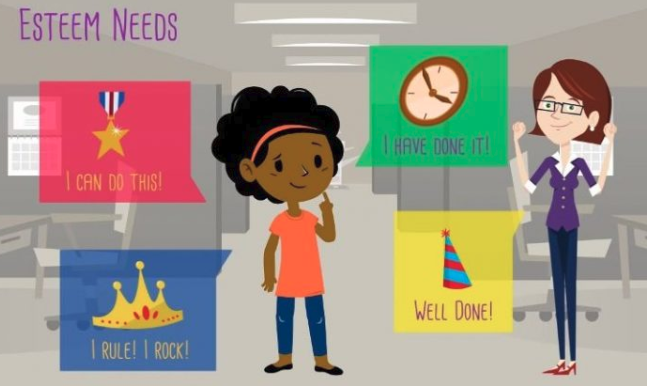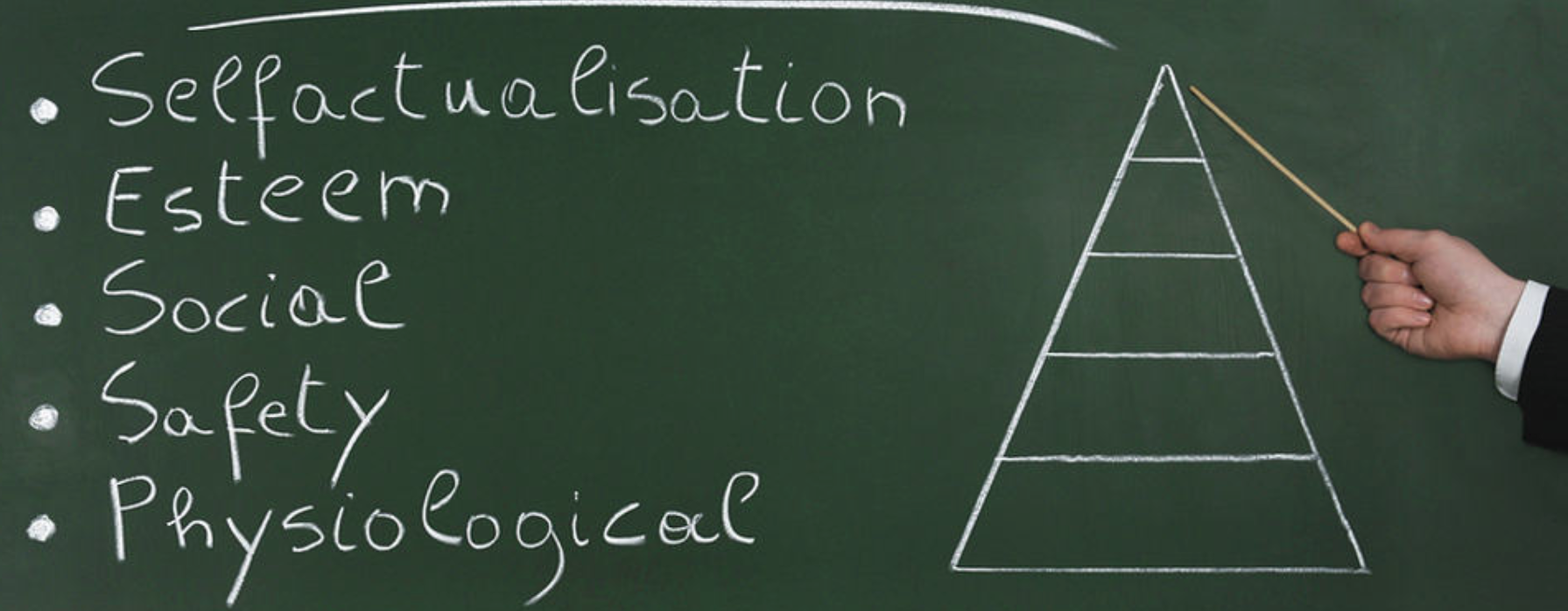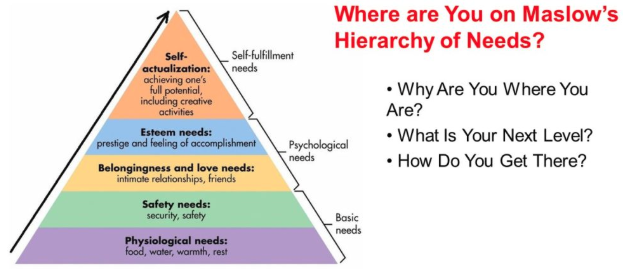
Maslow's Hierarchy of Needs can be mentally pictured as a pyramid with five levels of differing needs that all humans possess. The bottom layer of this imagined pyramid, also called the foundation, contains the seven basic needs that all humans must fulfill before moving up to the next level. You, the caregiver, have physical needs. In addition, every single one of your residents has basic needs.
The seven basic needs for all humans can be easily remembered by remembering and using the acronym 'OWN-A-SEX.' The individual components of the OWN-A-SEX acronym can be located directly below this paragraph.
O: OXYGEN
W: WATER
N: NUTRITION
A: ACTIVITY
S: SLEEP
E: ELIMINATION
X: SEX
Basic needs all pertain to maintenance and sustenance of the human body and/or the human race. For instance, a patient who is deprived of food and water will eventually die. People of childbearing age who do not have sex are unlikely to have the number of children it takes to keep the human race going.
'O' stands for oxygen, which represents the basic drive to breathe in order to survive. 'W' stands for water, which represents the hydration that the human body needs in order to survive. 'N' stands for nutrition, also known as the nutrients found in the foods that humans must eat in order to survive.
'A' stands for activity, representing the movement that the human body needs in order to thrive. 'S' stands for sleep, representing the adequate rest that every human body needs in order for cells to repair themselves and rejuvenate. 'E' stands for elimination, which represents the excretion of urine, stool and carbon dioxide.
'X' stands for sexual intercourse. This particular basic need might confuse some students because a person can live an entire lifetime without sex. Nonetheless, humans must have sexual intercourse in order to reproduce future generations of offspring. In other words, sexual intercourse is a basic need because the human race would eventually become extinct without it.
Why are basic needs important? Our patients cannot focus on higher-level needs until these basic needs have been fulfilled. For example, your hospital patient is not going to want to learn about his discharge instructions until he uses the bathroom. We must help him meet his elimination needs before he can focus on higher level needs such as learning how to apply his brace before he discharges to home.
Likewise, a caregiver is not really going to do perform optimally at the workplace if she is feeling sluggish, hungry and has not eaten in 48 hours, so she must meet her basic needs for food before she reports to work again. A child who lives in poverty usually performs poorly in school due to unmet basic needs such as hunger, thirst, poor air quality, and inadequate rest from living in crowded conditions.
In the aforementioned examples, the worker cannot focus on higher level needs at the workplace until her hunger subsides, and the poor child cannot focus on higher level needs such as school achievement until his basic needs are met.

